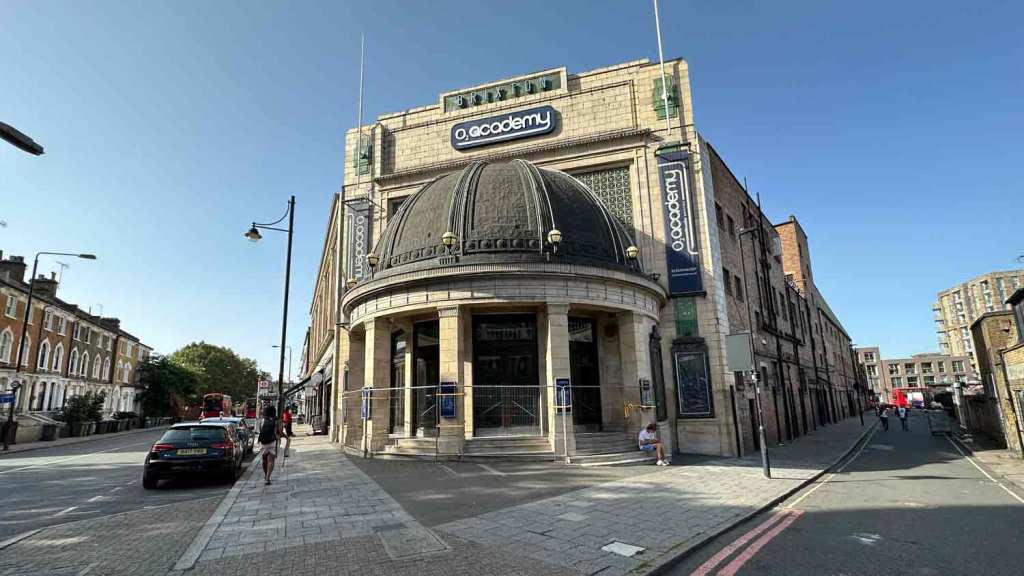
Lambeth council’s licensing sub-committee (LSC) yesterday (15 September) announced that, subject to an additional 77 conditions on the premises licence, it had decided to allow Brixton’s O2 academy venue to reopen.
The conditions include enhanced ticket checks, phased queuing systems, reinforced doors and a new security contractor.
On Thursday 15 December last year, Rebecca Ikumelo, a concert-goer, and Gaby Hutchinson, a security operative and dog handler employed at the Academy, lost their lives.
“They were utterly blameless and their deaths are a tragedy,” the committee said.
It said that, in hearing the police’s case to revoke the Academy’s licence, it was mindful that much material was confidential because it related to potential future proceedings and, as a result, large parts of the hearing were in closed session.
Even then, the committee said, there was a range of evidence that the police could not present to it, which was understandable, but limited the LSC’s options.
“The LSC cannot and must not act on an absence of evidence,” it said. It considered police submissions in relation to the “deterrence effect” of revoking the licence but were satisfied there was no need in this case.
Another review
However, the committee did not rule out the possibility that the police might be able to apply for another review when criminal proceedings resulting from the disaster are completed.
The committee also imposed a condition requiring risk assessments of future events by Academy Music Group (AMG) the company that runs the Academy, to incorporate a modified version of the public sector equality duty.
“This was an unusual step,” the committee said, “but we were concerned to prevent enhanced risk assessments of future concerts inadvertently ‘blanket- banning’ certain genres of music”.
Academy Music Group (AMG) fully supported the committee on this point.
The Academy can now re-open, but only once it is compliant with all of the new conditions.
“Once open, the operators will be subject to rigorous independent scrutiny to ensure public safety. The licensing sub-committee expects the licence holder to comply strictly with every condition imposed,” it said.
“Things went very wrong” on the final night of a three-concert series by Asake. The first two performances, on 11 and 12 December, took place without incident.
But on 15 December a crowd of about 1,000 people gathered outside the front of the Academy, the committee said.
“Some were ticket holders. There are reasons to believe that many others were not. Shortly after 10pm, and just minutes after Asake began his delayed performance, some members of the crowd violently forced open the front doors of the Academy,” the committee recorded.
“Others surged behind. With the doors now open, the crowd rushed into the Academy’s foyer.
“The two individuals who lost their lives were crushed under the weight and force of this surging crowd. Other individuals were taken to hospital.
Critical condition
“We understand that one individual remains in a critical condition.
“Our heartfelt condolences go out to the families of those who died and others who remain seriously impacted by this event.
“In common with other serious incidents of this kind, there is rarely a single cause,” the committee said,
“None of the parties dispute that a number of things went wrong. We agree. There are currently ongoing criminal investigations being carried out by the Metropolitan Police arising out of the incident.
“We expect there will also be inquests, and possibly civil proceedings, that will fully investigate the details of the incident and will seek to determine culpability and apportion blame, whether criminal or civil or both.”
But apportioning blame was not the task of the committee, it said.
It was considering two applications:
- an application to vary the Academy’s premises licence made by AMG; and
- an application to review the premises licence by the Metropolitan Police, inviting the LSC to permanently revoke AMG’s licence.
“If we had concluded that the public safety and prevention of crime and disorder objectives could not be promoted by permitting AMG to continue to hold the licence for the Academy, then we would have determined, without hesitation, that the licence should be revoked,” the committee said.
However, that was not its conclusion.
It stressed that its role had been “to consider the limited evidence made available to us at this point in time and assess whether the Academy can safely be re-opened for licensable activities. No more and no less.”
The committee noted that “a great number” of people, including trade and live music representative bodies, other professional bodies, including the Brixton Business Improvement District (BID), and members of the public had made representations against the police review application.
Professionalism
“These parties spoke to the professionalism of AMG as an operator and the importance of the Academy to the cultural and economic life of Brixton and the wider community, in addition to the significant role it plays in promoting live music in the UK,” the committee said.
The police, AMG and the licensing authority – Lambeth council – agreed that the two applications should be considered together at a “rolled-up hearing”.
They also agreed that it was essential that nothing was aired in public sessions that risked undermining the pursuit of justice for the bereaved families and also risked undermining the right to a fair hearing for any party involved in future potential legal proceedings.
The committee said some of its conclusions were based on material considered in private sessions.
AMG told the committee that it had analysed the cause or causes of the incident and proposed to put in place extensive measures to strengthen all relevant areas of its systems and procedures to ensure that a similar incident does not happen again.
“These remedial measures have been cemented into legally enforceable proposed new conditions on the premises licence (a breach of which can amount to a criminal offence in itself),” the committee said.
“The new measures either have been, or will be, subject to independent scrutiny and audit by relevant experts. Officers of the licensing authority and police will also have the opportunity to scrutinise these measures should they wish to do so.
Measures AMG proposed include:
Structural adjustments and strengthening measures to the front doors so that they cannot be forced open by a crowd in the future.
Managers replaced
The divisional manager and venue manager in position on the night of the incident have been replaced by other highly experienced individuals.
Closer liaison with the police and licensing authority including prior notice of events.
Enhanced risk management to introduce resilience into the risk assessment process with more checks and balances including mandatory oversight by senior management of higher risk events. Any event risk assessed as posing a significant risk of crowd disorder shall not take place.
Employment of a new security team provided by Showsec.
Every event will be subject to an “event management plan” – a procedure usually only used for large music festivals.
Advance messaging to ticket-holders to assist with orderly entry to the venue.
New measures to address the fragility of soft ticket check procedures, and improved procedures for the hard ticket check, including new barrier systems. These measures include the implementation of a phased queuing strategy.
A new medical personnel contractor will be employed at events.
The CCTV system will be enhanced both inside and outside.
The ticket checking system will be upgraded to Safetix which provides encrypted mobile tickets that cannot be stolen or copied in any way. Ticket checking will only be carried out by venue staff and not by external security contractors.
Enhanced radio systems to enable all relevant personnel to communicate.
Body worn cameras to be deployed by relevant personnel inside and outside.
More external lighting and, in an emergency, use of an external Tannoy system.
‘Sterile zone’
The front of the venue, and the steps leading up to the doors of the venue, are to be maintained as a “sterile zone”, with security surrounding them, to prevent a gathering of people outside the front doors.
Much of the police case for revocation of the Academy’s licence was heard in private and so could not be summarised in the committee’s public decision.
“We expressly find that the police have acted in good faith throughout these licensing proceedings,” the committee said.
“Where police have been unable to continue their engagement with AMG before this licensing hearing we find that they had good and sufficient reason to do so, namely to ensure that criminal investigations were not compromised.”
Police submissions, so as far they could be made public, were summarised as follows:
The police do not have confidence in AMG as the licence holder although they would not resist the Academy re-opening under a different licence holder.
They suggest that, given the seriousness of the events of 15 December 2022, it risks undermining public confidence in the licensing system if AMG’s licence is not revoked.
The police submitted that AMG’s application should be refused and the premises licence should be revoked as the appropriate and proportionate response to their review application.
When asked by members of the committee, the police were not in a position to explain to them what other “internal causes” they had identified. “Instead, they placed the onus on AMG to do so,” the committee said.
Unhelpful
“The police’s reasoning for this approach is understandable though ultimately unhelpful to our task: they do not wish to compromise current criminal investigations. We sympathise with the police’s position.
“However, the LSC cannot and must not act on an absence of evidence. We cannot speculate on what may or may not be contained in the police’s undisclosed evidence.
“We can only take into account and act on the evidence placed before us by the parties in these licensing proceedings. We have done so in good faith.
“Of course, it may be that sometime in the future the police will be in a position to disclose substantive new evidence about the ‘internal causes’ to which they allude.
“If so, they may be entitled to consider applying for a further review application which will be considered on its merits at that time,” the committee said.
The committee expressed its gratitude to Lambeth council licensing officer Paul Richards.
He had “worked tirelessly to scrutinise and analyse the causes of the incident and the measures proposed by AMG. He has done so independently of AMG and the police. We are indebted to him.
“At an earlier stage Mr Richards was not satisfied that AMG’s proposals went far enough to satisfy him that the Academy could re-open safely,” the committee said.
“His initial representations therefore suggested that the LSC should reject the variation application as it now stands. He also supported the police review.”
Robust encouragement
But, “after considerable engagement, and with the robust encouragement of Mr Richards”, AMG had agreed to a number of substantive improvements to its proposals,” the committee said.
“As a result, by the time of the hearing, Mr Richards’ position had evolved. In the final analysis, we agree with Mr Richards’ approach and stance.
The licensing authority’s eventual position at the hearing was that, with the addition of further important measures, agreed to by AMG, and solidified in enforceable conditions, the Academy could re-open in a manner that promoted the public safety and prevention of crime and disorder objectives with AMG as the licence holder.
“This evolution is exactly how licensing is intended to proceed – through partnership and engagement,” the committee said.
The committee quoted in full the remarks of the licensing authority counsel, Horatio Waller.
After detailing various legal precedents, the committee said it had come to the conclusion that it now did have confidence that AMG can operate the Academy safely and any failures in the past, which it expected would be fully investigated in other proceedings, did not require it to take the view that AMG must not be permitted to hold the premises licence.
“We do not accept that this position will bring the licensing system into disrepute or otherwise undermine the important deterrent element of decisions taken at licence reviews,” the committee said.
“We are aware that, as a result of this incident, the Academy has not operated since December 2022 with the resulting heavy financial losses to AMG.
“If a deterrent element were appropriate in this case, the closure of the Academy for some 10 months would have served that purpose.
On the facts of this case, we do not think that either AMG, or other operators, need to be deterred from actions or inactions that may have contributed to the extraordinary events of 15 December.
Confidence
“Evidence presented by representatives from the Music Venues Trust and the Night Time Industries Association gave us confidence that the response to the tragic events of 15 December 2022 by the licence holder had, in fact, exceeded the industry standard and what one would expect from an operator in this position.
“Furthermore, when asked about what the effect of deterrence would be in this situation, the police were unable to give us any specific comments on what the wider deterrence effect would be in this situation.
“Therefore, we came to the conclusion that revocation would not serve any specific deterrence objective.”
The committee said the “thrust of the police case” was that AMG had failed to identify and address “internal causes”. It noted that the police, due to ongoing criminal investigations, were only able to point to one “internal” issue, which the committee had considered in a confidential annex).
In any event, the committee said, it did not accept this criticism of AMG. “The LSC have, in fact, identified a number of significant internal (to use the police’s phrase) issues relevant to the incident. We set these out in the confidential annex,” it said.
“We are satisfied that all these internal issues have been adequately addressed by AMG’s proposed measures and proposals which are reflected in the conditions that we are imposing on the licence.”
In a decision unconnected with the 15 December events, the committee agreed that standing should be allowed in the Academy’s balcony.
Read the committee’s full report, including an appendix setting out the 77 conditions.






